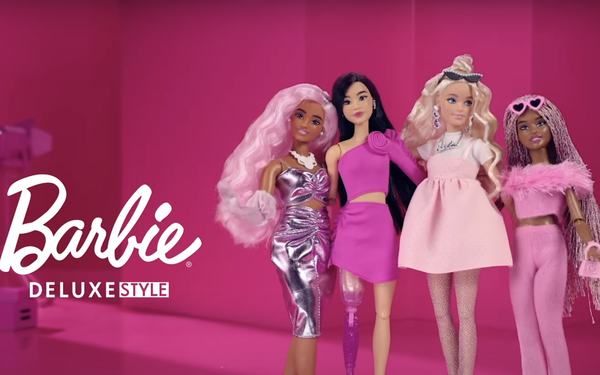toys
Trump's '2 Dolls' Remark Rattles Toy Industry
- by Sarah Mahoney @mahoney_sarah, May 7, 2025

Tariffs have many industries on edge, but few feel the pressure like toy makers, with about 80% of toys sold in the U.S. made in China.
In an earnings call this week, Mattel reaffirmed plans to raise prices to offset the impact of new tariffs, just in time for the holiday season. President Donald Trump spotlighted the issue in a Cabinet meeting, brushing off concerns. “Maybe the children will have two dolls instead of 30 dolls,” he said. “And maybe the two dolls will cost a couple of bucks more than they would normally.”
The quote sparked backlash and parody, including a “Two Dolls Donnie” segment on "Saturday Night Live’"s "Weekend Update."
Trump doubled down in a later NBC interview: “I don’t think a beautiful baby girl that’s 11 years old needs to have 30 dolls.”
advertisement
advertisement
With prices poised to rise and parents already squeezed, Marketing Daily asked Brian Benway, Mintel's senior tech and gaming analyst, how consumers are likely to react.
Interview has been edited for length and clarity.
Marketing Daily: Tariffs aren’t expected to kick in until the third quarter, but with the holidays looming, what kind of consumer reaction do you anticipate?
Brian Benway: There's going to be a lot of outrage, to speak kind of plainly. Our research shows that with toys and board games, consumers are very rigid on price. It's the most important factor, and they’re doing plenty of comparison shopping to make sure that they're getting the best value. If prices go up, purchases will go down.
Marketing Daily: People shop with two things in mind: the kids’ wish list and a firm budget. How might they adapt?
Benway: People won’t be skipping Christmas, and they are going to do what they can. I don't think folks will likely buy fewer, more expensive toys. Price will continue to be the most important factor, even above quality.
Our research has shown that 62% say they start with comparison pricing, often on secondary marketplaces, like eBay. This year, they’ll likely find other avenues. Thrifting might become more popular.
And while Amazon, Walmart and Target are top sources for toys, we might see some shifting to discount stores and other less common retailers, like grocery stores. They’ll be looking for generic alternatives to "Star Wars" action figures and Barbie.
Marketing Daily: Some of these tariffs could double toy prices. How aware do you think consumers will be? Amazon got into hot water with Trump recently, after reports that it would break out tariff impact in ways consumers could easily see, just as they see a line for shipping, handling and tax.
Benway: That was interesting. It seems like the White House wants to stop retailers from pointing out how much price increases are directly related to Trump's tariffs.
Marketing Daily:Do consumers know how fast the tariff impact is moving?
Benway: We’ve already seen reports that the ports on the West Coast are empty. Once those U.S. warehouses have used up their stock, there will not be any more stock coming in to replace it. Ships aren’t coming in with replacements. It's just a mess.

Marketing Daily: Any idea why Trump keeps fixating on dolls when talking about tariffs?
Benway: I think President Trump is focusing on dolls, and a lot of his specific statements on the tariff impact, to make it sound like the impact from tariffs will be frivolous. That's to mitigate the impact of what this could be, as if families aren't going to be hit harder elsewhere in the economy.
Anyone buying their child 30 dolls at Christmas has enough disposable income. It’s the 99% of parents — where suddenly a $20 doll will cost $40 — that’s where we'll see the main impact.
Marketing Daily: What about the “Buy American” pitch? Can U.S.-made toys fill the gap?
Benway: Unlikely. Even if people wanted to bring manufacturing to the U.S., they would have to buy the machines from China.
Marketing Daily:What’s your outlook for toy sales in 2025? Prices will rise, of course, but what about unit sales?
Benway: Unit sales will probably go down. The big manufacturers, like Hasbro and Mattel, will mostly be fine. Mattel looks confident that it can adjust the supply chain to circumvent hefty Chinese tariffs. I'm sure Hasbro is doing the same thing.
The impact on the industry will be seen in the little guys, the startups, the specialty shops, and those few actual U.S. businesses trying to make toys.


